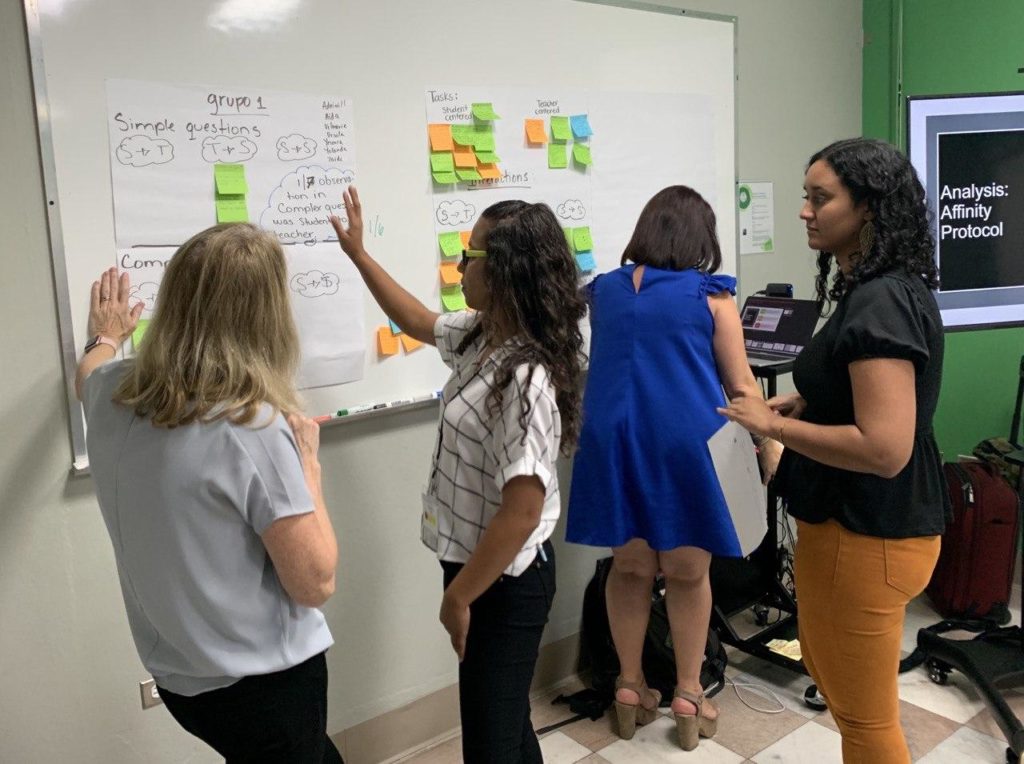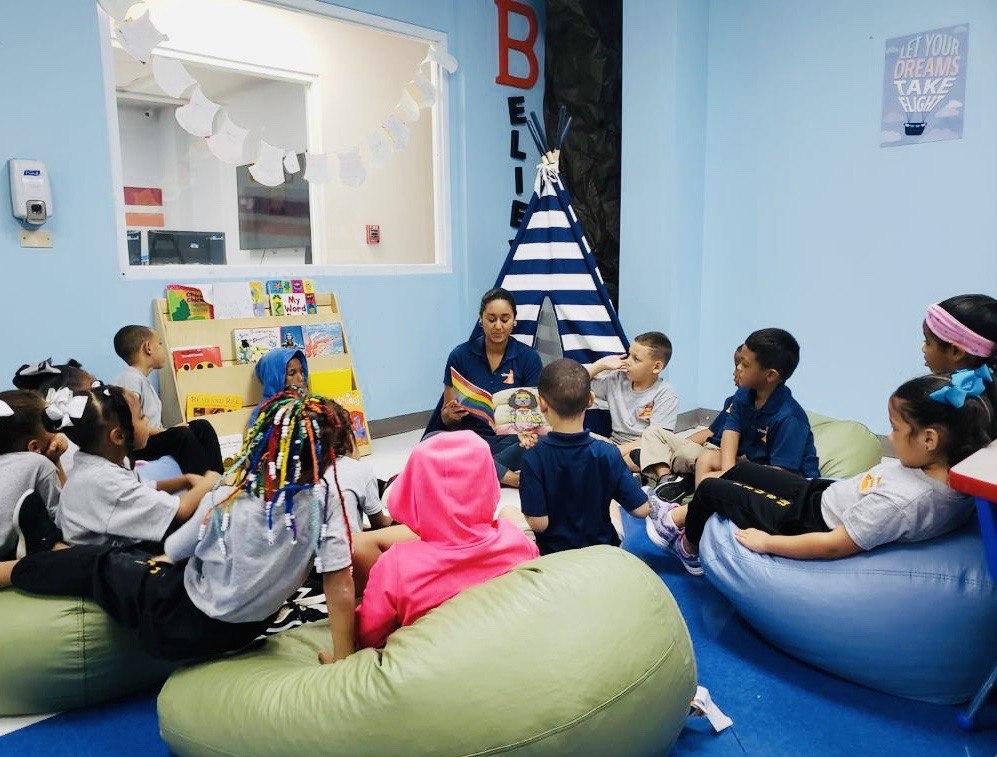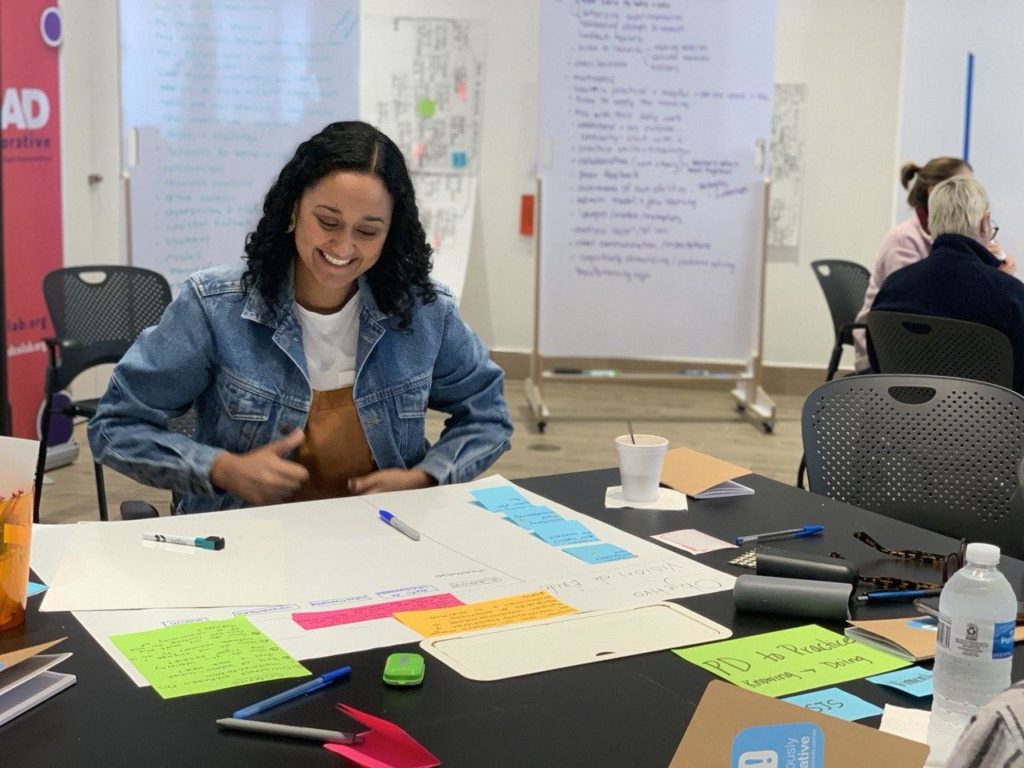“I never envisioned myself as a school leader. I always saw myself in the classroom.”
I am a first grade teacher at Vimenti School, Puerto Rico’s first charter school located within the public housing project Ernesto Ramos Antonini in San Juan, Puerto Rico. Ninety percent of our student population lives under the poverty level.
Day in and day out, we work tirelessly to build relationships with the school community of parents and caregivers to help support our families. Most of our student population has been exposed to trauma caused by the effects of poverty, violence and recent natural disasters (namely Hurricane Maria in 2017). Because of this, attendance and disciplinary issues are commonplace.

This year, my second year of teaching at Vimenti School, I was busy planning lessons, working on curriculum alignment, implementing behavior modification plans and finding different ways to impact my students. One morning, I found out that I had been chosen to participate as a fellow in an education cohort here in Puerto Rico, called Lead Collaborative. The fellowship focuses on school leadership, something I didn’t have a lot of experience with and really wasn’t a topic of interest for me.
For the past few years, I have attended and participated in many professional development workshops and have always enjoyed deepening my knowledge about best practices in the classroom. Although, admittedly, for educators, professional development is sometimes met with resistance due to wanting to stick with tried and true methods or uneasiness about collaboration with peers.
I never envisioned myself as a school leader or even involved in a leadership role outside my classroom; my desire has always been to work directly with children.
Nonetheless, I joined the program with no expectations and an open mind. This would be my first experience working with educators and school leaders from public, private and charter schools in the same environment. On my first day I realized that there were several school leaders and teachers who had many more years’ experience than me. However, I felt like my voice mattered, and that my experience and past knowledge were relevant. For the first time in my professional career, I was in a space where I felt like what I had to say was important. When the day ended, I thought a lot about this. I felt very proud of where my work has taken me and about the opportunity to collaborate with such a diverse set of educators.
Over the past several months it has been exhilarating to be in the company of people from diverse education sectors in Puerto Rico who share a passion for change in education. It has felt like we’ve been in a non-judgment zone of collaboration; anticipation for what would come next and a shared desire to make a positive impact on the lives of students.
I’m writing this blog post at the mid-point in my fellowship program. Over the past couple of months we’ve been trained in the Instructional Rounds framework, a practice adapted to education from the field of medicine that offers a structure for educators to work collaboratively and solve common problems related to learning and teaching. We’ve also participated in team building activities, conducted several off-site visits to gather data at various schools across the island and much more.

Mindset shift
After every experience during the fellowship, I was required to debrief with my colleagues at Vimenti School to share my observations, key learnings and feedback from the Lead Collaborative. It was in these moments where I realized that I could see myself as a leader in my school. I enjoyed coaching my team on everything I had learned and the work I had been doing in and out of our own school. I felt empowered and that there was a sense of importance to what we were working towards in the Collaborative – a feeling that what we might accomplish would actually have a positive impact on the lives of many Puerto Rican children and their families.
If I truly want to give my students a voice, I also need to use mine.
My classroom is filled with culturally diverse read-alouds every day, accompanied by purposeful conversations that give students a voice. Now, when I think of my long-term goals, I see myself as a leader not only of students but teachers too. There are many tough issues that we face as educators – literacy, child poverty, access, equity, bias, teacher voice – and I now realize that seeding critical conversations about the future of teaching and learning is part of my job too.

I’m currently applying for grad school to study Literacy as early as next year and have Columbia’s Teachers College and Harvard’s Graduate School of Education on my list of targets.Through debriefing with my colleagues and the leadership at my own school, I no longer see my classroom or my grade level as my scope of reach. I have a broader vision of my work and the future of education in Puerto Rico. We have a lot of work to do and I plan to be part of the solution.






